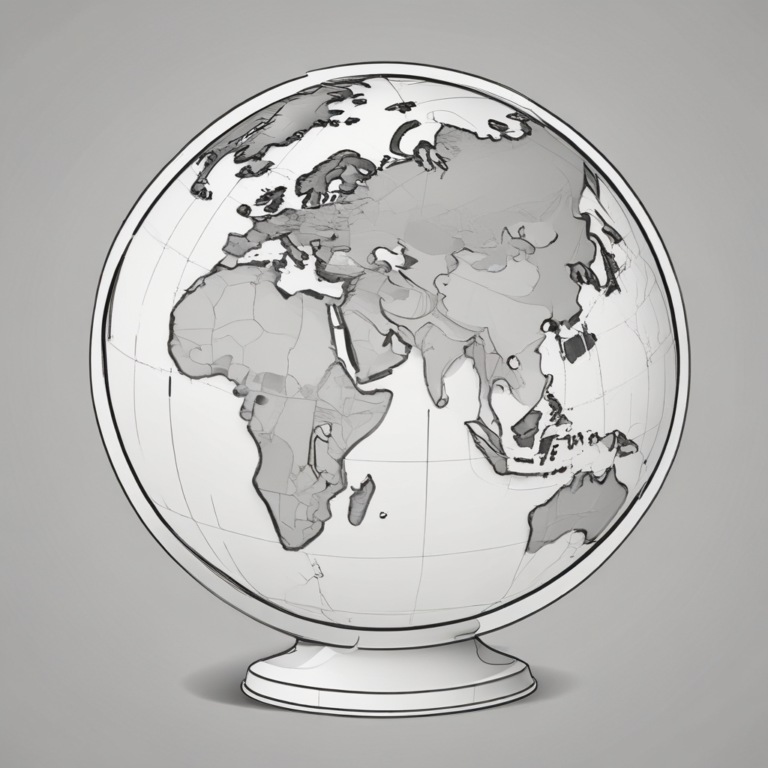The Moral Lighthouse: Artificial Intelligence and the World We Want
Artificial intelligence must help us build the world we want, not let a powerful few build theirs for us. Too often, that “few” consists of wealthy, primarily white, primarily male billionaires who see technology as a tool for profit and power, not dignity.
In various regions of the Global South, alternative cultural concepts offer new ways to think about technology and how to build a more just, equitable, and sustainable future. Technologists and policymakers committed to this goal must look beyond narrow moral and ethical frameworks and consider the wisdom inherent in these often ancient concepts.
From kesejahteraan to kotahitanga
Having spent considerable time in Asia, it has been observed how Western innovations can overshadow local cultures, languages, and values. A principle called kesejahteraan—roughly translated as prosperity or holistic well-being—has emerged as a beacon for AI governance. This principle is drawn from Malaysia’s National AI Office and is rooted in the country’s plural traditions, defining well-being not merely as a byproduct of economic growth, but as a national goal of human flourishing, grounded in compassion, justice, equity, and human dignity.
Similar values can be found in various traditions worldwide, such as the common good in Catholic social teaching and the Swedish political doctrine of folkhemmet—literally meaning “the people’s home.” These frameworks serve as a moral compass, emphasizing that technology, policy, and progress must serve a deeper human purpose.
No More Balancing Acts
With these values-based traditions guiding the discussion, it is essential to confront the prevailing assumption in tech policy discourse regarding the need to “balance innovation and regulation.” The reality is that there is no balancing act when the stakes are high. For AI and other powerful technologies, if it doesn’t serve human and non-human flourishing, it isn’t innovation worth pursuing.
This clarity—a crucial moral clarity—is often missing from corporate roadmaps and multilateral declarations. While some governments include these values in their national strategies, they often become secondary in the “innovation or regulation” balancing act. The moral lighthouse illuminates a path driven by indigenous, religious, and humanistic values that many people practice daily.
Market Failure, Moral Failure
Artificial intelligence is rapidly transforming economies, democracies, workplaces, and all dimensions of personal and political life. However, the narrative pushed by billionaire tech savants often emphasizes that innovation must be rapid, markets must be free, and regulation must be minimal. This is a dangerous illusion.
The history of social media is a telling example. Initially seen as a democratizing force, it has instead monetized outrage, polarization, and misinformation, with detrimental consequences for mental health, civic trust, and societal cohesion. Markets do not have a conscience; they optimize for profit and efficiency, often at the expense of inclusion and equity.
AI threatens to exacerbate these failures, and without proper checks, the damage could be profound. This underlines the need for a moral lighthouse—an ethical compass guiding policymaking before harm occurs, not after.
Technology is Not Destiny
The widely held belief that technological progress is inevitable is misleading. As economist Daron Acemoglu argues, the direction of technology is not predetermined; government policy can influence a more beneficial trajectory for AI. History shows that societies have stepped in to shape technology for the common good, rather than allowing exploitation and power accumulation to dictate its path.
The Market Cannot Steer Alone
The prevailing paradigm among tech companies, particularly in Silicon Valley, is rooted in market fundamentalism: innovate quickly, scale rapidly, and address consequences later. Harms are treated as bugs, cleaned up only when public backlash occurs. This results in AI systems that are biased, opaque, and harmful, impacting critical domains like hiring, policing, education, and healthcare.
When profit motives overshadow moral obligations to individuals and communities, a moral and ethical vacuum emerges. This is why societies need a moral lighthouse—rooted in local wisdom and community values, insisting that innovation must serve human flourishing.
What a “Moral Lighthouse” Looks Like
US tech leaders and policymakers have lost their moral high ground. It is time for leaders in the Global Majority to listen to their local communities rather than the narratives propagated by Big Tech. An ethical framework for AI policy should reaffirm basic principles that have formed the foundation of many indigenous traditions: that human dignity is non-negotiable, that power must be accountable, and that no innovation is above public scrutiny.
Indigenous traditions, such as the Seventh Generation Principle from the Haudenosaunee Confederacy, call on leaders to consider the impact of decisions on future generations. Countries like Aotearoa New Zealand have begun embedding indigenous wisdom into their governance systems, demonstrating that alternatives to the capitalist, market-first model are possible.
Flourishing… or Failure
The stakes are enormous. AI systems will influence hiring practices, healthcare access, education, and civic participation. If AI exacerbates inequality or disempowers individuals, it fails to represent the future we desire, regardless of technological advancement or profit potential.
A moral lighthouse does not guarantee safe passage but provides guidance powered by common moral values evident in global traditions. It helps navigate uncertainty and warns against potential pitfalls. In an era of rapid market acceleration and ethical drift, the need for such a beacon is more pressing than ever.
Ultimately, the critical question is not what technology can do, but what kind of world we want to build.









